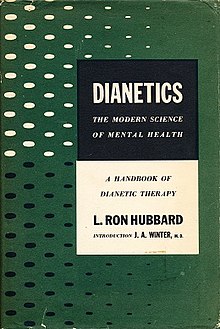What Does Dianetics Do?
Wiki Article
Dianetics Fundamentals Explained
Table of ContentsSome Ideas on Dianetics You Need To KnowThe 10-Minute Rule for DianeticsSome Ideas on Dianetics You Should KnowThings about Dianetics
I could not ever before not intend to obtain anything that enters your mind for you- if it was or else, I wouldn't be sitting below with you, doing this. I not only could never have a problem, or not want to listen to something that comes to mind for you, yet I'm entirely excited to recognize every concept, every idea, every picture or sensation that emerges or shows up for you- don't ever before assume or else, and if somehow you do, please just let me recognize! In some cases, you may have a thought, and picture, idea or incident turn up that does not seem to respond to the question, or associate with it, yet nevertheless, always do tell me regarding it, and as we continue, the significance will certainly arise for you.This is intrinsic in the basis of processing, and the subject of this conversation: the basic duties of the counselor and the customer: The basic function of the therapist is, unlike "standard training", not to regulate, which implies to impose and/or inhibit, however to instead work from the basis of EMPOWERING THE CLIENT.

Dianetics for Dummies
John Mcmasters shared this standard truth splendidly well in one of his lectures on Power processing, wherein he discusses exactly how he was asked what this "special propensity" was that he had for providing such fantastic sessions; he had to assume concerning that for a moment, and identified that it was what he had not been doing, as well as what he was doing: he wasn't assessing, evaluating, computing, or in reality, generating any type of ideas, not to mention verbal expressions, after giving the command and while awaiting the PC to complete their solution to their complete satisfaction; he was, just and only, being existing with the PC, and totally interested.The role of the counselor, demonstrated; that was his "unique knack". I have had my very own experience which showed me this well, really early in the video game. In 1982, having recently finished my training and teaching fellowship on New Era Dianetics, I was running this on a PC, and there was a factor in the session where (being a little bit damp behind the ears not yet having lots of hours under my belt as a professional auditor) the computer appeared to be "taking too long" to express anything verbally after I offered him a command.
This key became the most useful contribution that John ever before made to the subject of treatment or bookkeeping (Dianetics). In my modest point of view, it is the best contribution that anyone has ever made to these subjectsthe application is entirely non-judgemental, non-evaluative, and devoid of any type of pointer, recommendations or opinion.no preconditioned agenda for people, or 'levels' that they should do
In Scientology we prided ourselves on not evaluating for individuals. All that actually indicated was that the auditor did not Vocally review for the Computer in session.
Some Known Details About Dianetics

Any person who had ever seen John audit could not assist but discover a special high quality in his bookkeeping."The client's fundamental function is to be there with the purpose of relocating in the direction of their spiritual goals, and to easily and completely express and experience whatever materializes for them in responding to the inquiries and implementing the guidelines in the processing.
This is something to process as needed. Likewise, individuals frequently have prior experience and/or brainwashing in auditing/processing which, in some means, and to some levels, really misinforms them into attitudes, concepts and actions patterns that avoid the full realization of these functions, and so they will tend to inhibit the expressing of what comes to mind, as in the examples given above - Dianetics. * The very first, imp source and maybe primary examples of mis-indoctrination resulting in much less than totally smooth and effective sessions, can be located in particular elements of the training regimens, or "TR's":"TR's" are often a person's very first, or at least early, experience in Scientology, and while I will take place to describe what I see as the flaws in principle and practice, nonetheless, have a tendency to be considerably healing, done as they are offered (Hubbard urges that "TR's are not refining, they are educating", however factually, they are both processing AND training)
Alan Walter made similar observations, and enhanced these with his "Visibility Processes". There is no "failing", and no rejection of the reality of this being handling. The emphasis, as it needs to be, gets on experiencing the other person's visibility. All the indications which obtain a "fail" in doing "TR-0" are simply the being's initiatives to resist the various other person's presence, and instead of being pestered and nagged with "Flunk", which imposes "failing!" on the being, one just requires to be urged to "stick their feet in the water a little much deeper", to increasingly refurbish their capacity and desire to completely share and experience "being below", or "existence", with others.
An Unbiased View of Dianetics

Report this wiki page